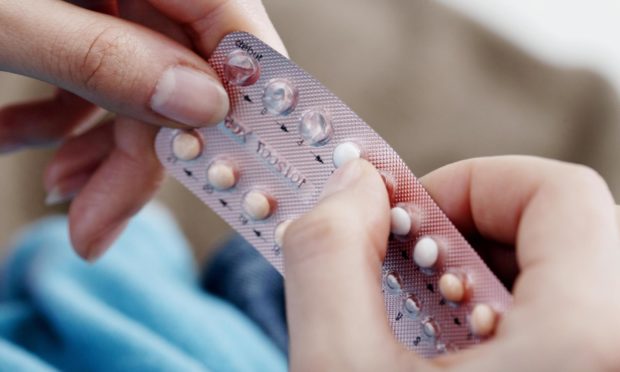The contraceptive pill has cropped up in discussions around blood clots and the AstraZeneca Covid vaccine recently – but what are the facts, and should we be worried?
Let’s try and get some perspective.
It is true that individuals using combined hormonal contraception (CHC), whether it’s the pill, patch or vaginal ring, are at risk of having a blood clot. However, the numbers of clots that happen because people are using CHC is very small. Much smaller than having a blood clot if they were pregnant.
So here’s the rub. Life is a balance of risks.
Many other factors can put us at increased risk of blood clots, such as having major surgery, being overweight, smoking, long haul flights and certain genes we inherit, to name but a few. Indeed, severe Covid infection increases the risk of blood clots too.
Unless people are severely ill and in hospital, those with Covid-19 should not stop their CHC suddenly, without switching to another effective method of contraception because this will increase the risk of unplanned pregnancy.
Can I safely get a Covid vaccine if I’m on the pill?
For people who have Covid-19 infections with only mild or no symptoms, we do not know what the blood clot risk is. However, they should not stop their CHC without another contraceptive plan.
Individuals who don’t have Covid but are using the CHC can speak to their contraceptive provider about changing to a different method if they wish. Other effective methods which don’t increase the risk of blood clots are the progestogen-only pill, the implant, contraceptive injection and intrauterine contraceptive devices (coil).
A very small number of cases of a rare, specific type of blood clot have been reported after receiving the AstraZeneca vaccine. Research is underway looking for a link. We do not know if being on CHC makes any difference to the risk. However, delaying the vaccine increases the risk of Covid-19 and its complications. It is therefore recommended that people attend for vaccination when offered, including CHC users.
They should not stop their pill, patch or ring before vaccination as this will not reduce the risk of blood clots immediately and will risk pregnancy. Of course, if people wish to switch method because they do not want to be at increased risk in the future, they can speak to their doctor or nurse.
Symptoms of blood clots can include breathless, chest pain, persistent headaches, coughing up blood, swelling of a leg or abdominal pain and people should seek medical advice if they experience these.
Dr Dianna Reed is a Consultant in Sexual and Reproductive Health for NHS Grampian

